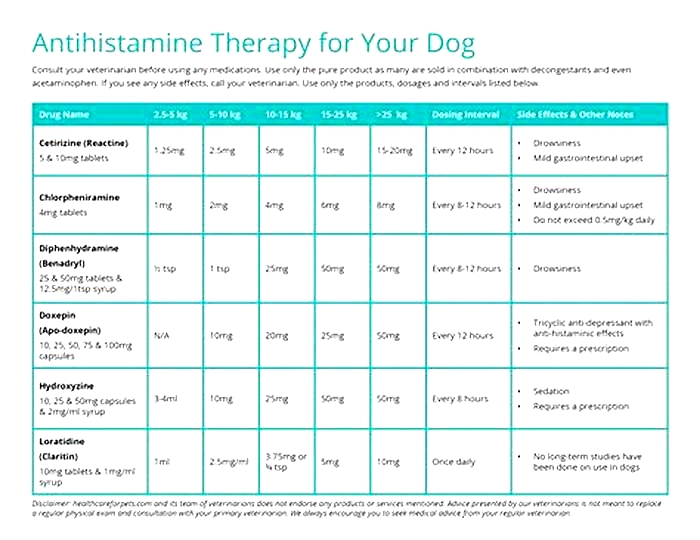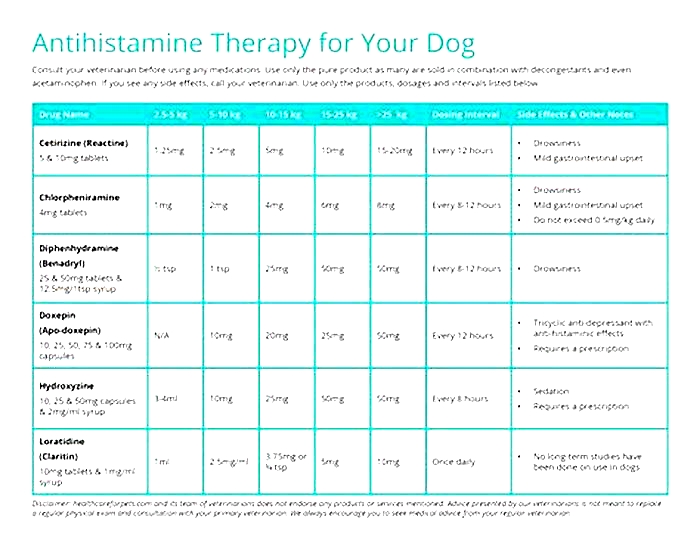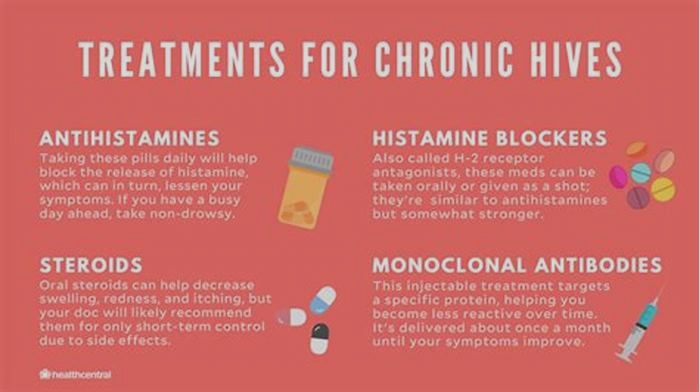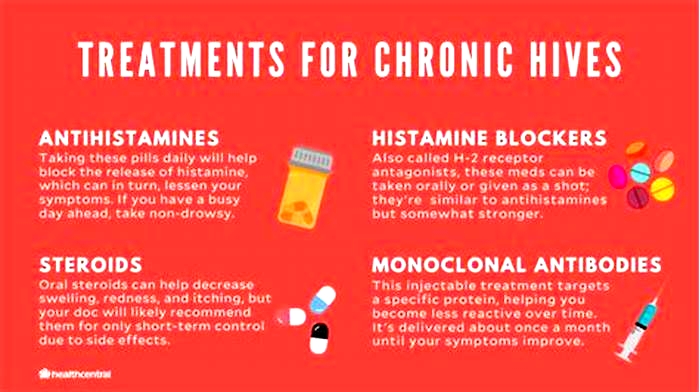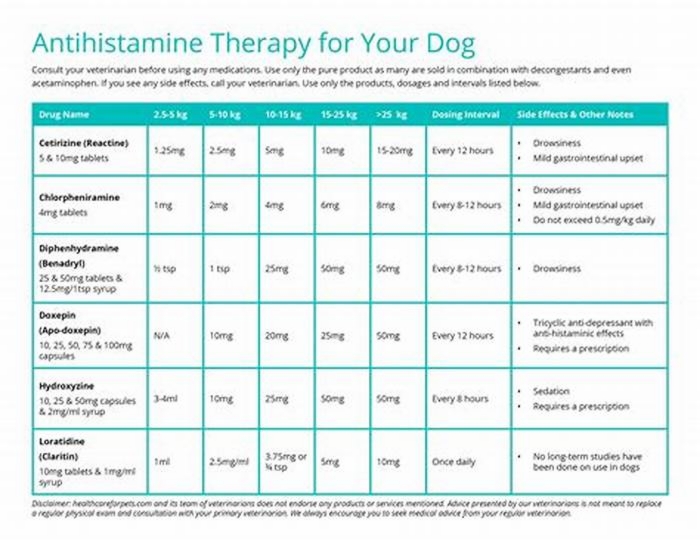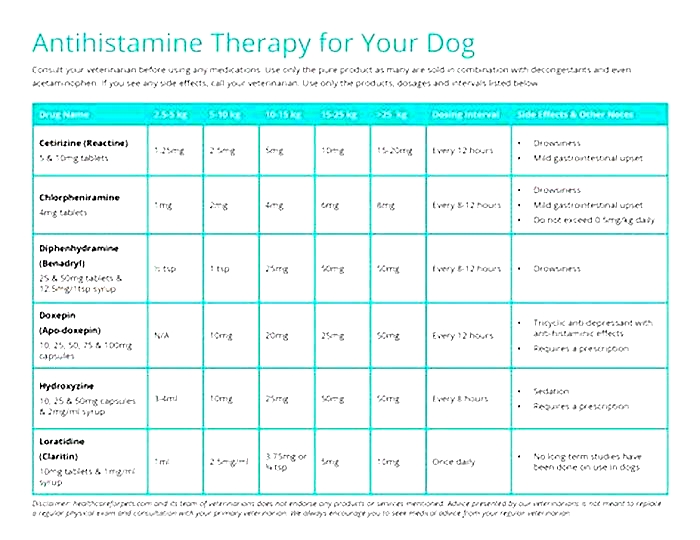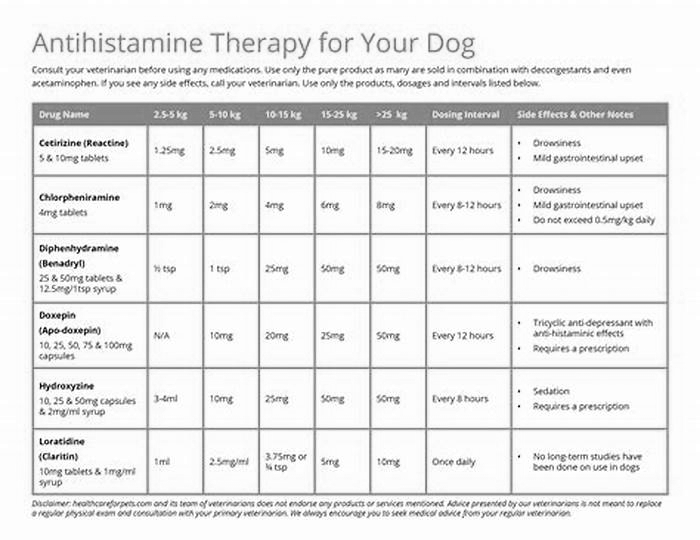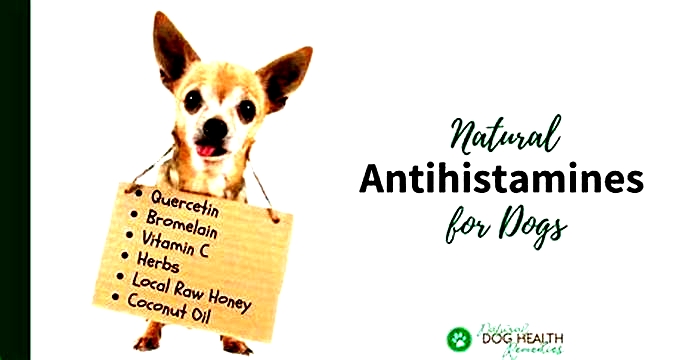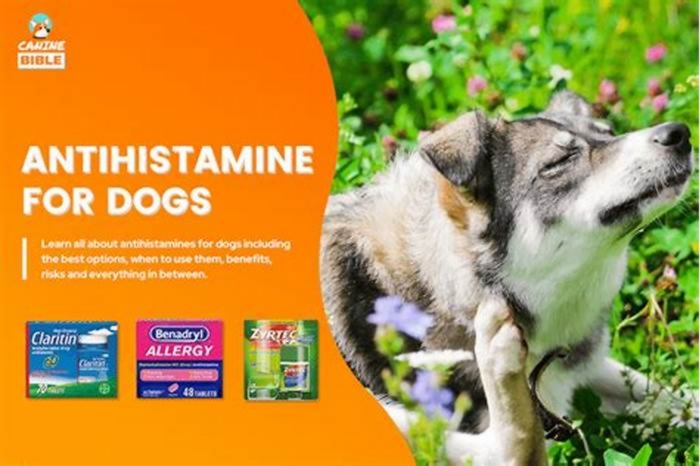Can I give my dog antihistamines
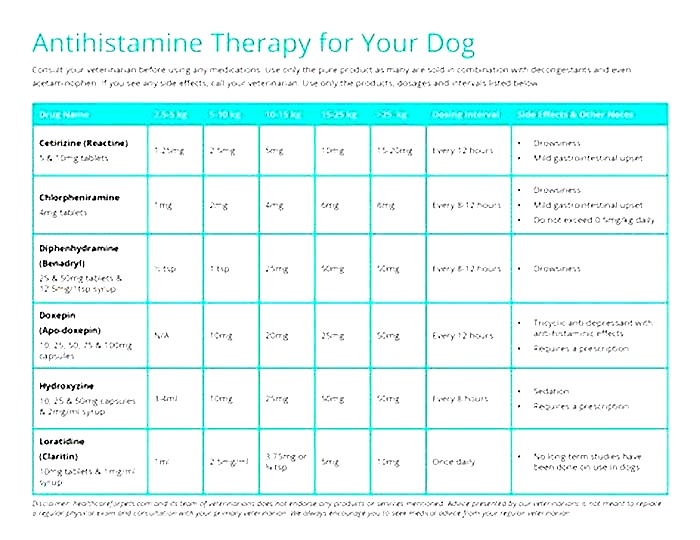
Are Antihistamines For Dogs Safe?
NOTE: You should always contact your veterinarian for advice and guidance before giving a pet any over the counter medication
No dog owner likes to see their pup sneezing, coughing and irritated due to an allergy. Yet finding a solution to the problem seems to be a lot harder than it should be.
Effective, safe and dog-specific allergy medicines seem to be annoyingly difficult to get your hands on (although they do exist), and so its only natural that dog owners have begun to question whether our own human antihistamines could help alleviate the symptoms of a struggling four-legged friend.
From Benadryl to Piriton, this article will explore the pros and cons of giving your dog human antihistamines, helping you to put a stop to your animals agitation!
Can I give my dog human antihistamines?
Human antihistamines are usually safe for dogs to take, but make sure you check the brand and correct dosage amount with your vet before giving one to your pet.
The most commonly used antihistamines are diphenhydramine, cetirizine and loratadine, which can all help relieve symptoms such as itching and sneezing for dogs.

Although sounding decidedly scientific, you may know these better as the main ingredients in well known branded allergy drugs such as Benadryl (diphenhydramine), Claritin (loratadine) and Zyrtec (cetirizine).
Just like with humans, these antihistamines can sometimes have side effects on dogs and so you need to be wary. Thankfully these arent usually harmful and tend to result in either making a dog very drowsy or opposingly making them behave more hyperactive or erratically.
But although most brands are generally safe, you do need to be careful when shopping for over the counter antihistamines. Occasionally they will contain other harmful ingredients such as decongestants which could be toxic for your dog.
Such mistakes can be avoided by thoroughly observing the label and ingredients list, or by getting in touch with your vet!
Best antihistamine for dogs
The best antihistamine for dogs is the Vets Best Seasonal Allergy Tablet, purely because its one of the only antihistamines on the market to be made especially for canines and not humans.
In fact, its not even suitable for human consumption!
This means you no longer have to stress over whether you can give your pooch a Piriton or not, as theres already a doggy designed option readily available!
While most canine allergy relief products are merely a vitamin or fatty acid supplement designed to boost itchy skin, Vet Bests tablets are one of the few to contain an actual antihistamine that prevents your pups body from reacting to allergens and stimuli they are sensitive to.
The tablets utilise the active ingredient diphenhydramine hydrochloride, the same antihistamine used in popular human allergy tablets such as Benadryl. And unlike other dog allergy medicines like Apoquel, Vets Best doesnt require a prescription, making them a cheaper and less time-consuming, quick fix!
The tablets work in the same way as a human drug, by blocking the bodys H-1 receptors in the blood vessels and muscles. This prevents your dogs body from producing histamines when confronted with non-harmful allergens, and in turn prevents irritating reactions like itching, sneezing, watery eyes and a runny nose.

Anyone who owns an allergy-suffering pup knows that skin issues are often the most troublesome symptom. So Vets Best tablets are a particular lifesaver when it comes to providing fast relief to minor skin irritations, helping to reduce constant scratching.
As the tablet is designed for dogs, working out the right dosage for your pet pooch is also totally hassle-free. Here is the simple dosage table for you to follow, based entirely on your pups weight!
- 10-24 lbs: 1/2 tablet
- 25-49 lbs: 1 tablet
- 50-75 lbs: 1 1/2 tablets
- 75 lbs+: 2 tablets
As with any medicines, you should always check with your vet before administering Vets Best to your pet, just to be safe.
Ask a veterinarian before use if your pet has:
- Glaucoma
- Asthma
- Heart Disease
- Hypertension
- Urinary Bladder Obstruction
- Enlarged Prostate Gland
- Hyperthyroidism
- Is Pregnant or Nursing
- Weighs under 15 lbs
Its also particularly important to avoid using it in combination with any other product which contains diphenhydramine, to help avoid overdose
Can I give my dog Benadryl?
Although it might seem strange, it is usually safe to give your dog Benadryl to relieve allergy symptoms, and its even prescribed or recommended by some vets.
However, like with any drug, it may not particularly be the best solution to your pups problem!
Benadryl has been known to have adverse effects when taken in combination with other medications your dog may be on, which is why its always imperative to talk to your vet before administering it.
How and when to use Benadryl for dog allergies
Benadryl is best for dogs who are suffering from low to mild allergic symptoms because the drug isnt specifically formulated for canines, so their effectiveness can range from mild to effective.

However, vets still often use it to ease environmental allergies in pups and also to deal with reactions to insect bites or stings. It can also be used as a pre-treatment for possible vaccine reactions.
It is to be taken orally, so it is often easiest to add a pill to your dogs food.
Benadryl is not a suitable medication if your pet is having an acute allergic reaction.
Symptoms of an acute reaction are characterised by facial swellings, difficulty breathing and in rare cases anaphylactic shock.
When to avoid Benadryl
Benadryl is one of the safest over-the-counter drugs that can double up as a doggy medication.
However, for canines with certain health issues, they are not the smartest choice.
For pregnant dogs, dogs with glaucoma and canines with low blood pressure or cardiac conditions, taking Benadryl is an unneeded safety risk and so its best to avoid using it.
And its also important to note that if you make the wrong choice, they can be a risk for healthy dogs too. Thats because some Benadryl tablets are combined with other medicines which make them unsuitable and so its vital you ensure your Benadryl tablets contain only diphenhydramine.
Whats the correct Benadryl dosage for a dog?
The recommended dosage of Benadryl for a dog is 1 mg per pound of body weight, to be taken 2-3 times a day. Standard tablets are 25 mg, and so they are the perfect size for a 25 lbs dog.
Obviously this gets trickier when your pup is slightly larger or smaller than 25 lbs and so the most reliable thing to do is ask your veterinarian for the correct dosage for your canine.
Can I give my dog Piriton?
It is generally considered safe to give a dog Piriton to treat environmental allergies, as long as you have sought guidance from a veterinary professional first.
Unlike some of the previously mentioned antihistamines, Piriton is mainly made up of the ingredient chlorphenamine. In the human world, this drug is mainly used to treat runny, itchy noses and hive symptoms, making it a great anti-allergy tablet.
However similar to Benadryl, it is often prescribed by vets to help treat dogs suffering allergic reactions.
But as with Benadryl, if using Piriton for a pup, you should be wary of there being a chance of side effects.
In Piriton these can include; drowsiness, constipation, dry mouth and nausea. In rare instances, these can be more severe and may include respiratory issues, irritability, poor coordination, urination issues and affected concentration.
Thankfully, all of these reactions tend to be fairly mild if they actually occur.
When to avoid Piriton for dogs
If your dog has an existing medical condition, it isnt worth taking the risk and giving them Piriton without the advice of a vet.
Whats the correct Piriton dosage for a dog?
Typically, vets recommend dosing by the dogs weight at 0.91.7 mg per pound of body weight, every 8 to 12 hours.
Its important to remember though that this is merely a guideline, and as always, the best way to determine the correct dosage for your dog is to contact your vet.
What Human Drugs Are Safe For Dogs?
Updated April 25, 2023
Youve got a dog needing treatment and youve even got some of your own meds nearby. Can you use them?
The use of non-veterinary drugs is a common question from pet owners. When is it a good idea to give your dog human medications? Sometimes, surprisingly, it is. Just not that often.*
Here are the top over the counter (OTC) drugs you can give, and a few you definitely cant! Plus some guidelines for safe and appropriate use. See full disclaimer below.
Dog Antihistamine Dose Chart
Antihistamines can be used in dogs to reduce the signs of allergy. The following antihistamines appear safe in dogs (note that Benadryl is no longer sold in Australia as diphenhydramine tablets).
| Antihistamine | Estimated Dose |
|---|---|
| Phenergan (promethazine)* | 1 mg/kg twice daily |
| Polaramine (dexchlorpheniramine) | 2-12 mg twice daily |
| Benadryl (diphenhydramine)* | 2 mg/kg twice daily |
| Telfast (fexofenadine) | 5-10 mg/kg once daily |
| Claratyne (loratadine) | 5-20 mg once daily |
| Zyrtec (cetirizine) | 2.5-10mg once daily |
These doses have essentially been worked out by trial and error and often scaled down from human doses.
Bad stuff: We dont know why, but dog allergies respond very poorly to antihistamines. Even the best (cetirizine) only helps 20% of dogs. The response may improve if combined with EFAs (see below) and its worth trying a few before giving up.
Aspirin, ibuprofen, Naproxen for Dogs
Non-steroidal anti-inflammatory drugs like these work well in humans with minimal side-effects. This means we get a lot of questions about using them in dogs.
Bad Stuff: Please dont use these drugs at all. Human anti-inflammatory medications are almost universally toxic to dogs. A single dose of Nurofen or Voltaren can be fatal, and survivors are left with permanent organ damage. Even aspirin, although used in the past as a blood thinner, is not recommended.
The veterinary pain medications are the only safe option. Read about effective treatments for arthritis in dogs here. If your dog has taken any human anti-inflammatory, contact a vet immediately. See also paracetamol below.
Carsickness Treatments
Mild motion sickness in dogs can be treated with Phenergan or Benadryl antihistamine tablets (see doses above) which may also cause mild drowsiness. Ginger products used for people also appear safe.
Bad Stuff: Most dog owners dont see much success. Nowadays the only good drugs for car sickness are prescribed at the vet. Dramamine was great but was taken off the market due to problems with human abuse.
Read a lot more about stopping car sickness in dogs here.
Cough Suppressants
Dextromethorphan is an ingredient found in many human dry cough treatments. We often use it to comfort dogs with kennel cough at a dose of 5, 10 or 20mg depending on the dogs size (usual dose 0.5-1 mg/kg twice daily). Just make sure that the product you use contains no other drugs.
Bad Stuff: You need to be 100% sure that the cough can be safely suppressed. Click here for the common causes of coughs in dogs. If it is caused by lower airway infection, heart disease or a foreign body then suppressing it is very dangerous. Even when the diagnosis is confirmed to be kennel cough, antibiotics usually work faster so please see your vet first.
Diarrhoea Meds
PAW Digesticare is an OTC veterinary probiotic and prebiotic food supplement. Combined with a bland diet, it helps restore the normal gut bacterial flora and can assist with some diarrhoeas. We supply either sachets or you can purchase a whole tub.
Vets use binding products to help reduce the unpleasant symptoms of diarrhoea. These include bismuth sub-salicylate, kaolin or montmorillonite. All are fairly harmless but you might have trouble finding them as they arent used much in people.
Bad Stuff:Home treatment is only appropriate for bright and happy, fully vaccinated adult dogs with mild diarrhoea of no more than a few days duration. They need to also have a good appetite and no blood in the stool. Although I understand why frustrated owners may resort to it, there is no place for Imodium in canine medicine. If symptomatic treatment doesnt work, its off to the vet.
Ear Drops for Dogs
Epi-otic and similar veterinary ear cleaners are an essential part of good preventive management of problem ears. Aqua ear can be used to dry the ears of frequent swimmers and prevent infection. Except for these, there isnt much.
Bad Stuff:OTC ear drops are over-used and frequently abused. They are only appropriate for prevention, not treatment. None will fix even the mildest problem so dont be fooled by your dogs improvement. They are just learning to live with the pain. Most ear drops permanently damage hearing if the eardrum is ruptured, and are always painful in diseased ears.
Read a review of over-the-counter ear cleaning solutions here.
Eye Drops for Dogs
Human artificial tears and OTC antibiotic eye ointment can be used in dogs.
Bad Stuff: The use of these products without a diagnosis masks serious disease and could lead to loss of the eye or loss of sight. Glaucoma, dry eye or corneal ulcers look the same as conjunctivitis without testing.
Glucosamine for Dogs
Glucosamine and chondroitin supplements for arthritis can be given to dogs with a very low risk of side effects. Doses are assumed to be similar to that of a human of the same size.
Bad Stuff: There is next to no evidence that glucosamine works in pets. Read here about the caregiver placebo effect and more effective arthritis treatments for dogs.
Laxatives for Dogs
Lactulose is a safe and effective laxative suitable for prolonged use in most dogs. It is sold as a liquid in pharmacies and given at approximately one teaspoon per 5kg body weight. The dose is then adjusted to give a faecal consistency neither firm or sloppy.
Paraffin oil can also be used at similar doses but must be mixed with food, and is much less suitable for long-term use.
Bad Stuff: For every five dogs that owners think are constipated, only one really is. Unless youre certain (e.g. your dog always gets bound up after chewing a bone) its best to confirm the diagnosis first and rule out more serious problems. Severely bound up animals will need a proper enema, and I dont mean Microlax.
Melatonin for Dogs
Melatonin is commonly advocated as a mild and safe sedative for dogs.
Bad Stuff: Evidence is sorely lacking for its efficacy, and the only melatonin sold without prescription in Australia is homeopathic. How they can even claim its really melatonin is beyond me.
Omega 3 Essential Fatty Acids
Theres very solid evidence for the benefit of omega 3s in dogs. They are proven to reduce signs of dermatitis and may play a role in reducing cardiac arrhythmias. They are safe and often well-tolerated by dogs at a dose of 1 g fish oil per 4-5 kg bodyweight.
Bad Stuff: Although they are useful, omega 3 fatty acids do not exert a strong effect in most dogs. Dont give up too soon though; they can take 3 weeks to show an effect. They should be avoided in dogs prone to pancreatitis.
Pain Relief for Dogs
So what can you give a dog for pain? The best of a bad lot is paracetamol, sold as Panadol, Calpol or Tylenol (called acetaminophen in the US). It is sometimes used by vets at a dose of 10 mg/kg twice daily.
Bad Stuff:My strong advice is to avoid paracetamol unless its impossible to get to a vet. Paracetamol is nowhere near as safe or effective as pain meds made for dogs. It is extremely toxic to cats.
Skin Creams
Hydrocortisone 0.5% cream (e.g. Dermaid) is available without prescription. It can be used for areas of minor irritation or allergy.
Many antifungals (e.g. Canesten) can be used in pets.
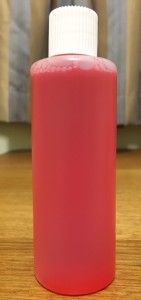
Bad Stuff: Do not use creams on broken skin, and always be aware of how much is being swallowed by pets. You could easily reach a toxic dose by reapplying creams that are licked off. Its best to fit an elizabethan collar if using and see your vet if there isnt rapid improvement. Prolonged use can cause skin damage.
Fungal infections in dogs are very unlikely. If it looks like ringworm, its usually bacterial. The best thing for this is our magic pink chlorhexidine disinfectant scrub (available OTC).
Vomiting Suppression in Dogs
Bad Stuff: Antiemetics & antacids should never be used in dogs without veterinary advice. If your dog is vomiting, there is usually a good reason, and suppressing the vomiting is probably not the best answer. Antacids are used commonly in people but have almost no place in canine medicine.
Disclaimer
None of these drugs has been properly tested for safety in animals so pet owners need to accept that there may be unknown and possibly serious adverse effects. Always check first with your vet if these medications are suitable for your dog and be very careful if your pet has any other health problem or is on other drugs. Doses in mg/kg are estimates only; a 20kg dog X 2 mg/kg diphenhydramine would receive 40mg.
*Why Are Vet Drugs Different?
There are four reasons why most animal drugs dont get used in people and vice versa.
- Different diseases: many of the common problems of dogs or cats are rare in humans
- Different drugs: even when the disease is the same, another medicine may work better in animals
- Different metabolism: many drugs successfully used in people have a ridiculously impractical half-life or dose, or actually are toxic
- Different legislation: for reasons lost to me, but possibly related to points 1, 2 & 3, companies often release separate drugs onto the veterinary market than the human one
Have something to add? Comments (if open) will appear within 24 hours.By Andrew Spanner BVSc(Hons) MVetStud, a vet in Adelaide, Australia. Meet his team here.

